Description
BUY UPGRADED OR HYBRID SHEEP FOR SALE
Our hybrid sheep are meticulously bred from a variety of esteemed breeds, including Barbados Blackbelly, Katahdin, Merino, Blackhead Dorper, and White Dorper sheep. This careful crossbreeding results in sheep that exhibit the best traits of each breed, making them robust, adaptable, and highly productive.
We uphold the highest standards in sheep husbandry through our comprehensive Sheep Housing Program, ensuring a safe and comfortable environment for our animals. Our Sheep Production Management and Sheep Breeding Programs are designed to optimize health and productivity, while our Breeder Selection Program guarantees that only the best genetics are passed on to future generations.
Our rigorous Feeding Program is tailored to meet the nutritional needs of our sheep at every stage of their development, promoting growth, health, and vitality. Additionally, our Health Management and Disease Management Programs are pivotal in maintaining the wellbeing of our flocks. Monthly administration of Vitamin B-Complex, Iron, Vitamins ADE, and DCM keep our sheep in peak condition. We also implement a quarterly delousing and deworming schedule to prevent parasitic infestations. Biosecurity is a cornerstone of our operations.
This holistic approach ensures that our hybrid sheep are not only healthy and productive but also resilient against diseases. Investing in our hybrid sheep means investing in a future of agricultural success and sustainability in the Philippines.
WHY BUY HYBRID SHEEP FROM US?
1. We implement a monthly delousing regimen for our hybrid sheep starting at 4 months of age.
We prioritize the well-being of our hybrid sheep by instituting a monthly delousing schedule beginning when they are 4 months old. This preventive measure safeguards our sheep from parasites that can cause discomfort and health issues. By adhering to a consistent delousing routine, we ensure that our sheep remain healthy, comfortable, and thriving. Our dedication to this thorough care process results in sheep that are not only healthier but also more productive.
2. We adhere to a deworming schedule for our hybrid sheep every three months.
To maintain the optimal health of our hybrid sheep, we follow a rigorous deworming routine every three months. This procedure effectively targets and eliminates internal parasites, preventing them from causing significant health problems. By disrupting the parasite life cycle, our deworming approach supports the overall health and growth of our sheep. This proactive method ensures that our sheep meet high health and productivity standards, giving you confidence in your purchase.
3. We administer Vitamin B-Complex, Iron, ADE, and DCM injections to our hybrid sheep monthly, with an additional dose three days before delivery or pickup.
At Alpha Agventure Farms, we bolster the health and vitality of our hybrid sheep with essential vitamin and mineral injections on a monthly basis and three days prior to delivery or pickup. These supplements enhance their disease resistance, ensuring that our sheep are in optimal condition. Choosing our sheep means benefiting from our comprehensive care protocol that emphasizes excellent health and performance, providing you with animals ready to thrive in your flock.
4. We offer ongoing technical guidance on sheep farming as part of our after-sales support.
At Alpha Agventure Farms, our commitment extends beyond the sale with ongoing technical support for sheep farming. We provide expert advice through email or SMS whenever you need assistance. Whether you have queries about feeding, breeding, or general management, our knowledgeable team is available to help. This after-sales support ensures that you receive reliable guidance to maintain the health and productivity of your hybrid sheep.
For more personalized and dedicated technical support, we offer an in-depth farm consultancy service. Our experts work closely with you to create customized solutions for your specific farming needs, ensuring your sheep operation is efficient and effective. With our consultancy service, you’ll receive tailored guidance and strategies to enhance your sheep farming practices.
HISTORY OF THE HYBRID SHEEP IN THE PHILIPPINES
Hybrid sheep in the Philippines emerged as a strategic response to the diverse and evolving needs of local sheep farming. By blending various sheep breeds, farmers aimed to create animals that could thrive in the unique climatic and farming conditions of the region, offering enhanced adaptability, productivity, and resilience.
The Origin of Hybrid Sheep
Hybrid sheep were developed through crossbreeding different sheep breeds to combine their desirable traits. This practice began in response to the need for sheep that could better handle the tropical climate of the Philippines and provide more efficient meat and wool production. Breeds such as the White Dorper, Blackhead Dorper, Barbados Blackbelly, Katahdin, and Merino were selected for their specific characteristics, including disease resistance, heat tolerance, and rapid growth rates. The goal was to produce a hybrid sheep that would not only adapt well to the local environment but also offer superior performance in terms of meat quality and overall health.
Breeding Practices and Development
The development of hybrid sheep in the Philippines involved careful selection and breeding of parent sheep to achieve desired traits in their offspring. This process included evaluating the performance of different breeds in various environmental conditions and selecting those with the best qualities for crossbreeding. For instance, the White Dorper, known for its hardiness and meat quality, was crossed with the heat-resistant Barbados Blackbelly and the wool-efficient Merino to create hybrids that could perform well in the Philippine climate. Over time, these crossbreeds were refined through successive generations to enhance their traits and ensure consistency in their performance.
Benefits of Hybrid Sheep
The introduction of hybrid sheep brought several benefits to Philippine sheep farming. One significant advantage is their adaptability to the tropical climate, which is often challenging for purebred sheep from temperate regions. Hybrid sheep are more resilient to heat and humidity, which reduces the need for intensive management and increases their overall survival and productivity. Additionally, these hybrids typically exhibit improved growth rates and meat quality, meeting the growing demand for high-quality lamb and mutton in the local market.
Current Trends and Future Prospects
Today, hybrid sheep continue to play a crucial role in Philippine sheep farming. Farmers and breeders are constantly exploring new breeding combinations and techniques to further enhance the traits of these sheep. Advances in genetic research and breeding technologies are expected to contribute to the development of even more efficient and resilient hybrid sheep, ensuring that they remain a valuable asset to the Philippine agricultural sector.
In conclusion, hybrid sheep have become an integral part of sheep farming in the Philippines, offering solutions to the challenges of local conditions and market demands. Through ongoing breeding efforts and advancements, the future of hybrid sheep looks promising, with continued improvements in their performance and adaptability.
FREQUENTLY ASKED QUESTIONS
What are the primary benefits of hybrid sheep?
Hybrid sheep for sale offer numerous advantages due to their diverse genetic backgrounds. These sheep combine the best traits of multiple breeds, leading to improved growth rates, better disease resistance, and enhanced adaptability to various climates. They benefit from heterosis (hybrid vigor), resulting in increased fertility, higher lamb survival rates, and overall productivity. This makes hybrid sheep a robust and versatile option for a wide range of farming environments, optimizing both economic and operational efficiency.
How do hybrid sheep perform in different climates?
Hybrid sheep are known for their adaptability across various climates due to their mixed genetic heritage. Whether in hot, arid regions or cooler, temperate zones, these sheep show remarkable resilience. Their genetic diversity helps them thrive without requiring specialized environmental controls, making them suitable for diverse farming conditions. This adaptability minimizes the need for intensive management practices and enhances their overall performance, ensuring that hybrid sheep can be effectively raised in a variety of geographic settings.
What is the average weight gain of hybrid lambs?
If you are looking to buy hybrid sheep, you’ll be pleased to know that hybrid lambs exhibit impressive weight gain due to their hybrid vigor. On average, they can gain between 300-400 grams per day when provided with optimal feeding and management conditions. This rapid growth rate not only ensures quicker market readiness but also translates to increased profitability for farmers. By investing in hybrid lambs, you are choosing an option that supports efficient and productive livestock management.
What are the grazing habits and preferences of hybrid sheep?
Hybrid sheep exhibit efficient grazing habits, benefiting from their varied genetic backgrounds. They thrive on a range of forage types, which promotes pasture biodiversity and reduces overgrazing. Their ability to adapt to different grazing environments allows them to utilize available forage effectively, which supports sustainable pasture management practices. Implementing rotational grazing and monitoring their forage intake can optimize their productivity and contribute to maintaining the health of your pastures.
What are the reproductive advantages of hybrid sheep?
The price of hybrid sheep often reflects their superior reproductive advantages. Hybrid sheep typically have higher fertility rates and larger litter sizes compared to pure breeds. This is due to the heterosis effect, which enhances ovulation rates and conception success. As a result, you can expect more lambs per ewe, leading to increased overall flock productivity. The enhanced reproductive performance of hybrid sheep contributes significantly to their value and effectiveness as part of your breeding program.
What are the common health issues in hybrid sheep?
Despite their genetic diversity, hybrid sheep can still face common health issues such as internal parasites, foot rot, and respiratory infections. However, their broad genetic base often results in better disease resistance compared to pure breeds. To maintain their health, regular monitoring and preventative measures are crucial. Implementing a comprehensive health management plan, including routine deworming and proper housing, will help ensure the well-being of your hybrid sheep and minimize potential health problems.
How should I feed hybrid sheep for optimal growth?
For those seeking hybrid sheep for sale, understanding their dietary needs is essential for optimal growth. A balanced diet consisting of high-quality forage, grains, and mineral supplements is crucial. Providing adequate protein, energy, and vitamins supports rapid growth, strong immune function, and high reproductive performance. Adjusting feed rations according to their life stages and production goals will help maximize their growth potential and overall health, ensuring that your hybrid sheep reach their full productivity.
What is the lifespan of hybrid sheep?
When searching for hybrid sheep near you, it’s helpful to know that hybrid sheep generally have a lifespan of 10-12 years, which is comparable to their purebred counterparts. Their longevity can be influenced by several factors, including management practices, health care, and environmental conditions. By providing proper nutrition, regular veterinary care, and minimizing stress, you can extend their productive lifespan and ensure that your hybrid sheep remain healthy and productive throughout their lives.
How do hybrid sheep contribute to sustainable farming?
Hybrid sheep enhance sustainable farming practices by improving resource efficiency and productivity. Their adaptability reduces the need for intensive inputs such as specialized housing and excessive feed supplements. Their robust health and fertility also lower overall veterinary and breeding costs. By incorporating hybrid sheep into your farming system, you can achieve more efficient resource use and better overall sustainability, contributing to a more eco-friendly and cost-effective farming operation.
What are the common management practices for hybrid sheep in the Philippines?
In the Philippines, managing hybrid sheep involves several key practices tailored to local conditions. Providing adequate nutrition is crucial, with a diet consisting of quality forage, grains, and mineral supplements. Regular health monitoring and preventative care, including deworming and parasite control, are essential due to the lack of vaccines. Ensuring proper housing that is clean, dry, and well-ventilated helps prevent diseases. Implementing good biosecurity measures and maintaining a stress-free environment are also important for the health and productivity of hybrid sheep.
How do hybrid sheep perform in terms of meat quality?
If you’re looking to buy hybrid sheep, their meat quality is one of their notable advantages. Hybrid sheep typically produce high-quality meat with desirable traits such as tenderness, flavor, and marbling. The combination of different breeds enhances muscle development and fat distribution, resulting in premium meat products. This can lead to better market prices and consumer satisfaction. By choosing hybrid sheep, you are investing in superior meat quality that meets high standards and demands.
What are the optimal housing conditions for hybrid sheep?
Hybrid sheep require well-ventilated, dry, and clean housing to prevent respiratory issues and foot diseases. Providing ample space, protection from extreme weather, and appropriate bedding materials is essential for their well-being. Proper housing should also facilitate easy access to feed, water, and monitoring to ensure the health and productivity of your hybrid sheep. Maintaining a clean and comfortable living environment is crucial for their overall health and efficient management.
How do hybrid sheep perform in grazing systems?
Hybrid sheep excel in various grazing systems due to their adaptability and efficient foraging behavior. They can effectively utilize a range of forage types, enhancing pasture productivity and sustainability. Implementing rotational grazing practices can optimize their nutrient intake and contribute to maintaining pasture health. By integrating hybrid sheep into your grazing systems, you can achieve better pasture management and support sustainable farming practices.
What are the common behavioral traits of hybrid sheep?
Hybrid sheep often display a mix of behavioral traits inherited from their parent breeds. They are typically hardy, alert, and socially adaptable. Understanding these behavioral traits, such as flocking tendencies and maternal instincts, can help in effectively managing and caring for them. By recognizing and accommodating their natural behaviors, you can ensure the well-being and productivity of your hybrid sheep, leading to a more successful farming operation.
How do hybrid sheep compare to fullblood sheep in terms of economic returns?
In the Philippines, hybrid sheep often present a more cost-effective option compared to fullblood breeds like Blackhead Dorper and White Dorper, which can be significantly more expensive. Despite their lower purchase price, hybrid sheep still offer impressive growth rates, fertility, and health resilience. This combination of affordability and performance makes hybrid sheep a practical choice for many farmers, contributing to overall productivity and profitability within the local context.
What are the best health management practices for hybrid sheep in the Philippines?
In the Philippines, where vaccines for sheep are not yet available, health management for hybrid sheep focuses on preventative measures and regular monitoring. Essential practices include maintaining good biosecurity, such as quarantining new animals and keeping housing clean and dry. Regular deworming, parasite control, and providing a balanced diet with necessary minerals and vitamins are crucial. Close monitoring for illness and prompt veterinary care are important to manage health issues effectively and ensure the well-being of your hybrid sheep.
How do hybrid sheep affect genetic diversity in a flock?
Hybrid sheep play a significant role in enhancing genetic diversity within a flock. Their diverse genetic backgrounds reduce the risk of inbreeding and associated health issues. This genetic variation improves overall flock resilience, adaptability, and performance. By maintaining a diverse breeding program that includes hybrid sheep, you can sustain these benefits and promote a healthier, more robust flock over the long term.
What are the meat yield and quality characteristics of hybrid sheep?
Hybrid sheep are known for their superior meat yield and quality, thanks to their diverse genetic backgrounds. They typically exhibit excellent muscle development, resulting in higher carcass weights and better meat-to-bone ratios. The meat is generally tender, flavorful, and well-marbled, making it highly desirable in the market. Optimal feeding and management practices can further enhance meat quality, ensuring consistent and high-quality production that meets consumer expectations.
How should hybrid sheep be integrated into an existing flock?
Integrating hybrid sheep into an existing flock requires careful planning to minimize stress and disease transmission. Quarantine new arrivals for 2-4 weeks, monitor their health, and gradually acclimate them to the existing flock. Proper integration helps maintain smooth social dynamics and reduces potential disruptions. By following these steps, you can ensure a successful transition and maintain the health and productivity of both your hybrid and existing sheep.
Can I use your upgraded or hybrid sheep as breeders?
Yes, you can use our upgraded or hybrid sheep as breeders. They have met our breeder selection criteria for hybrid sheep. However, if your budget allows, we recommend using our fullblood Blackhead Dorper or White Dorper buck as a partner for your upgraded or hybrid ewe to achieve even better breeding results. For buyers interested in hybrid sheep near you, selecting high-quality breeding pairs can enhance your overall flock performance and productivity.


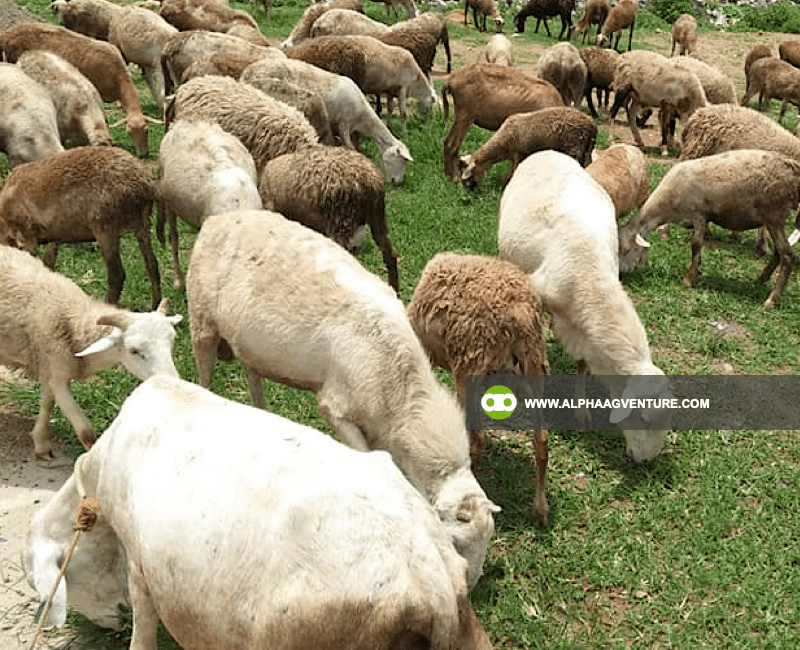
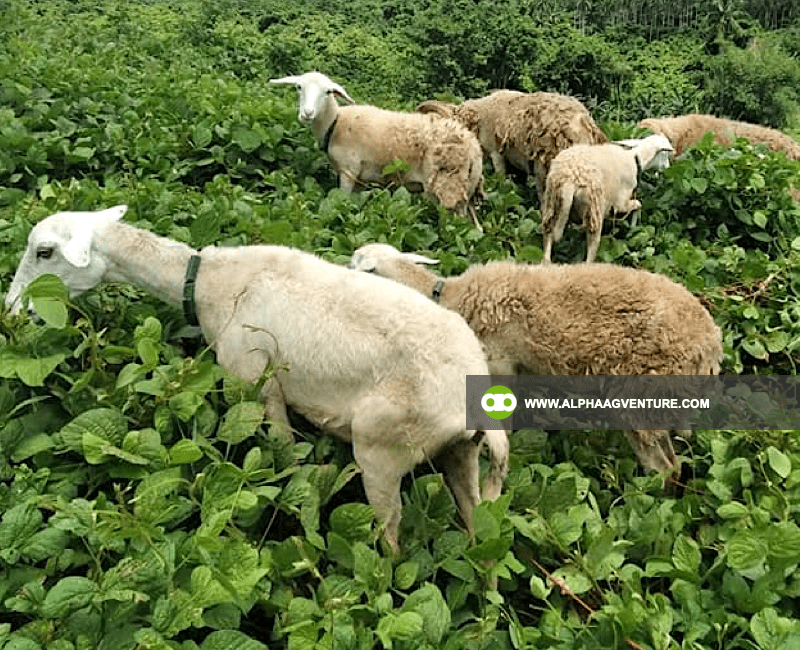
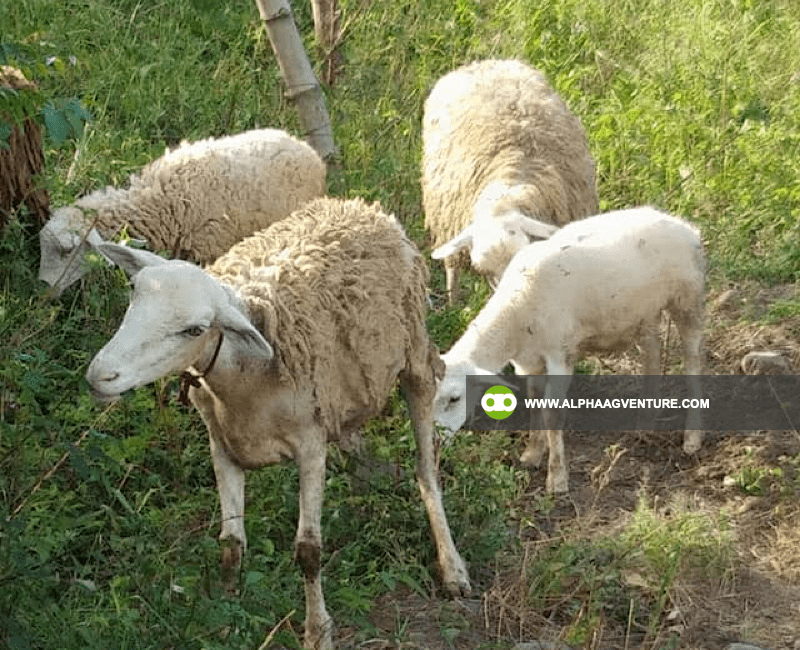
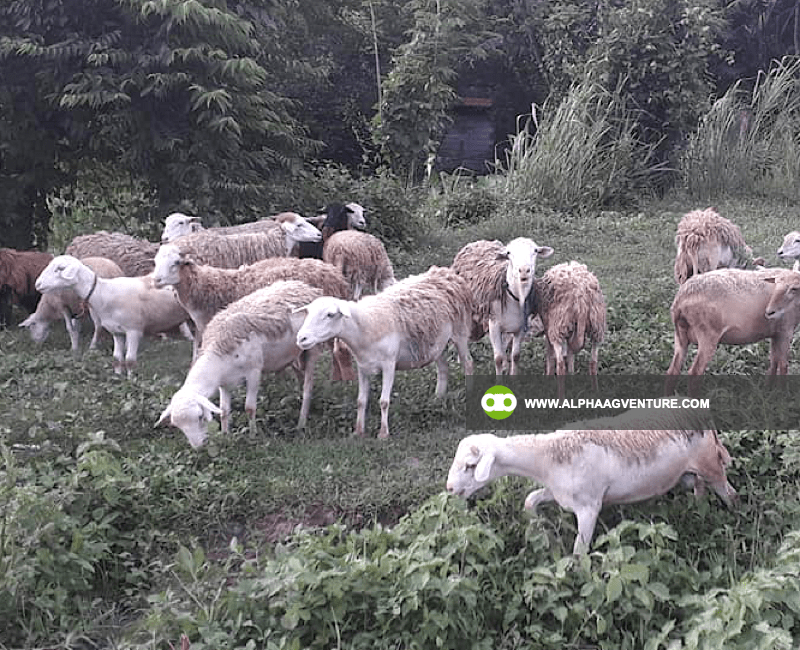
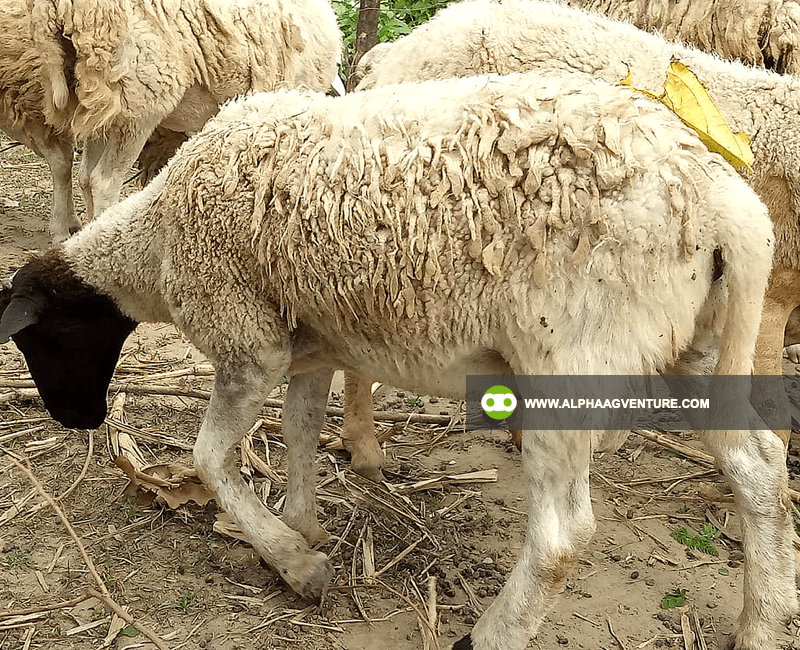
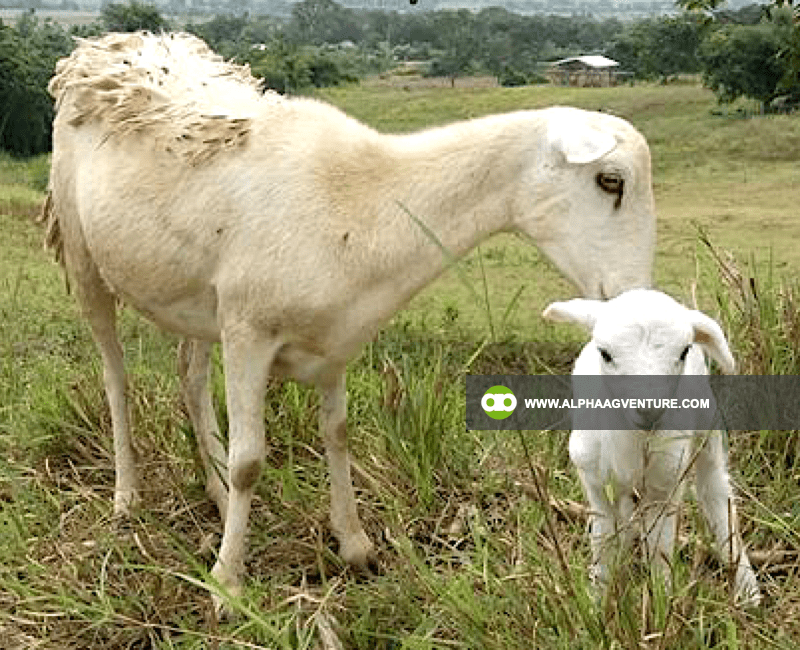
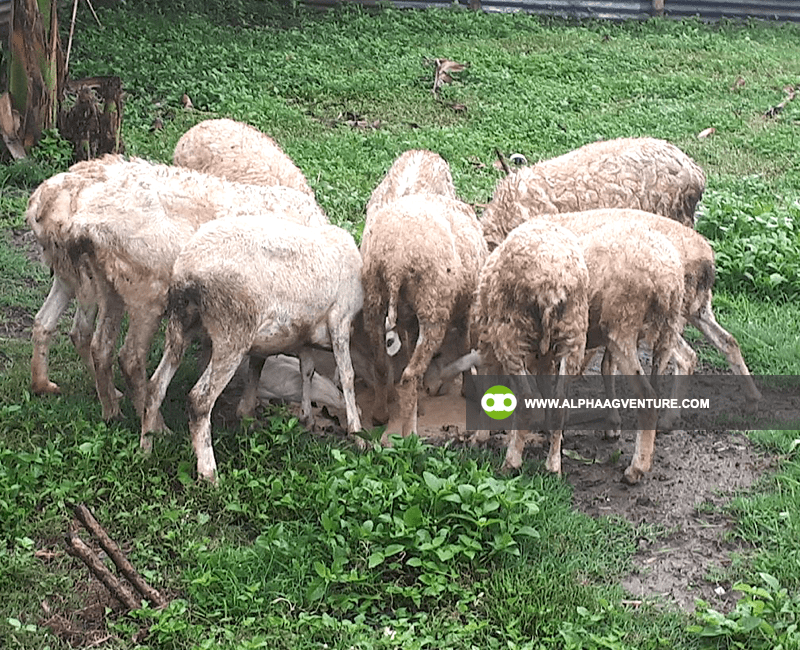
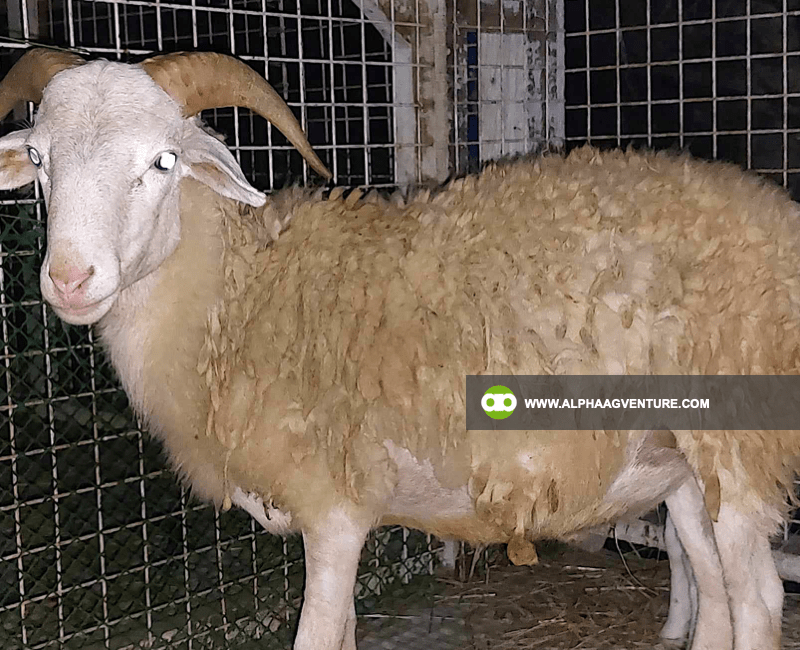
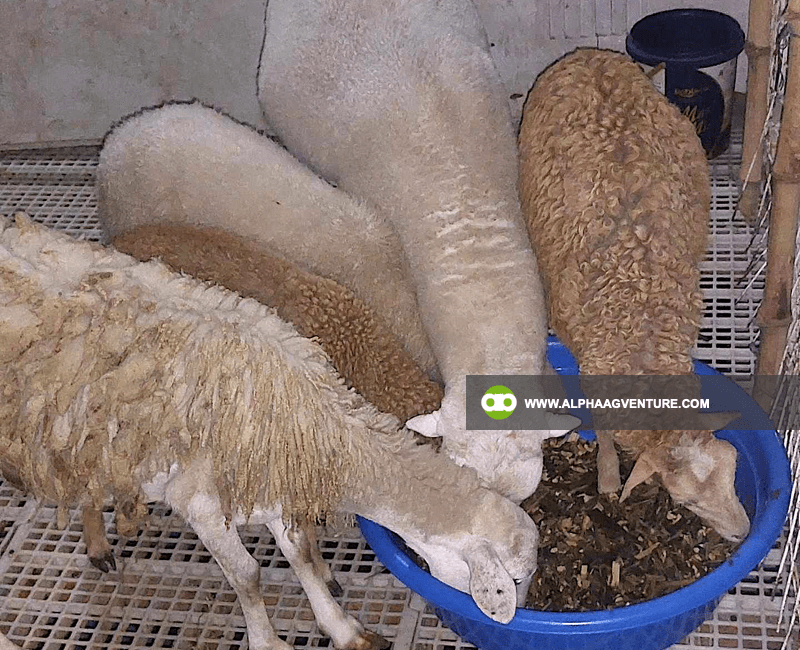
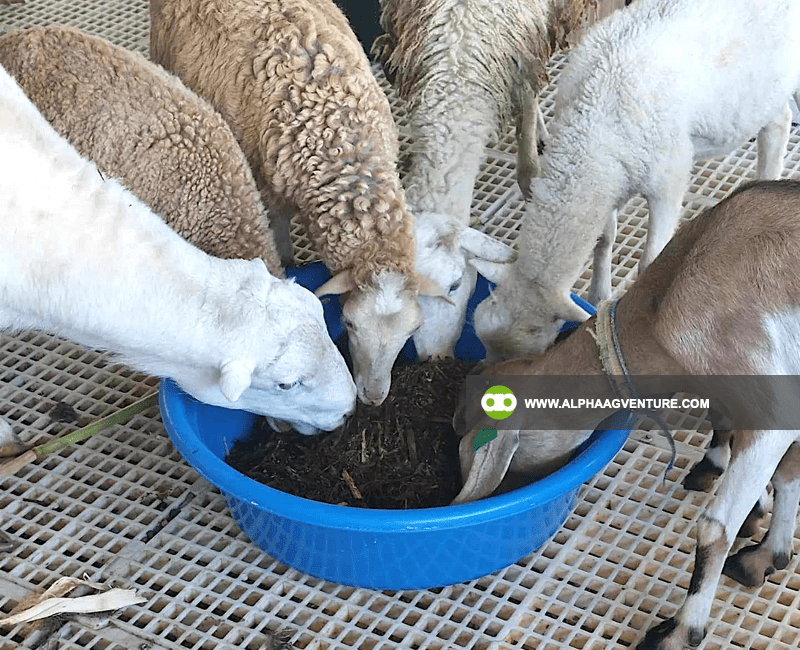
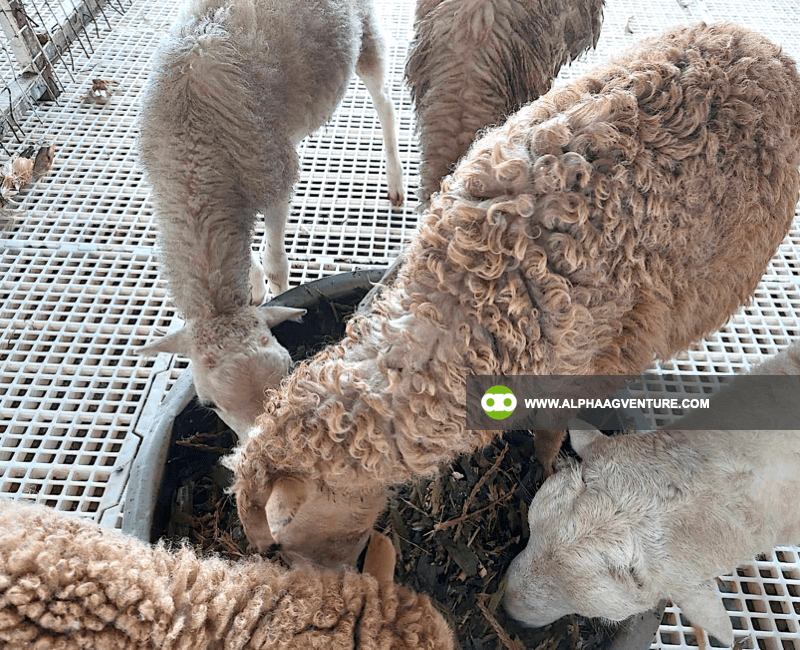
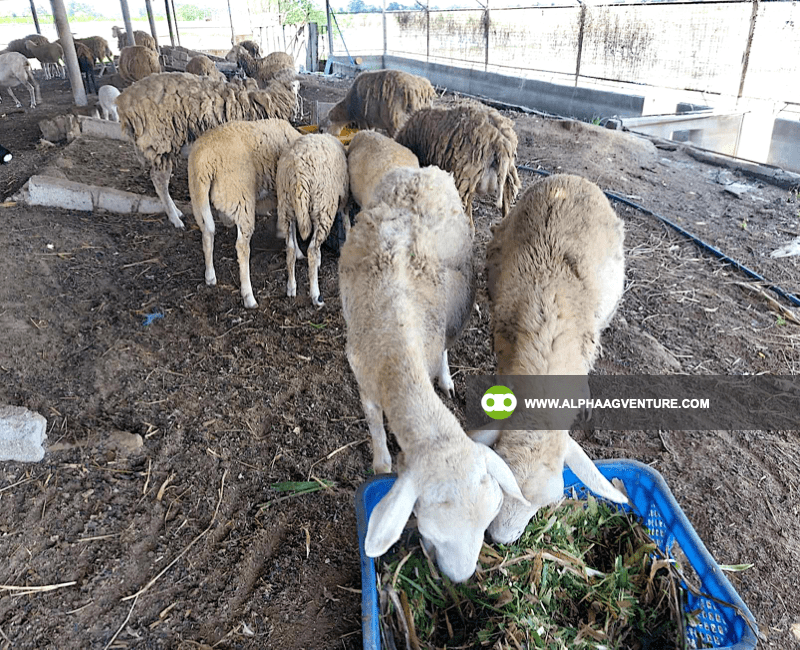
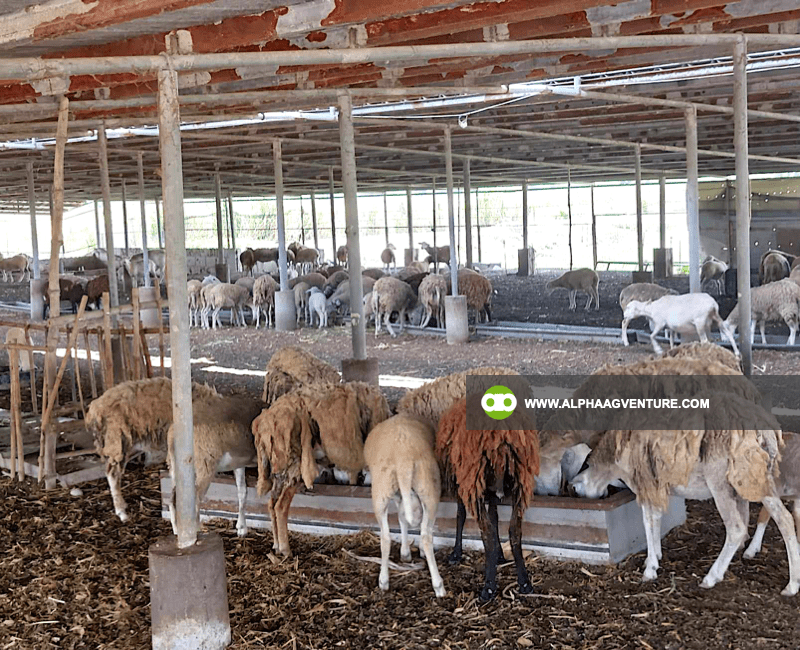
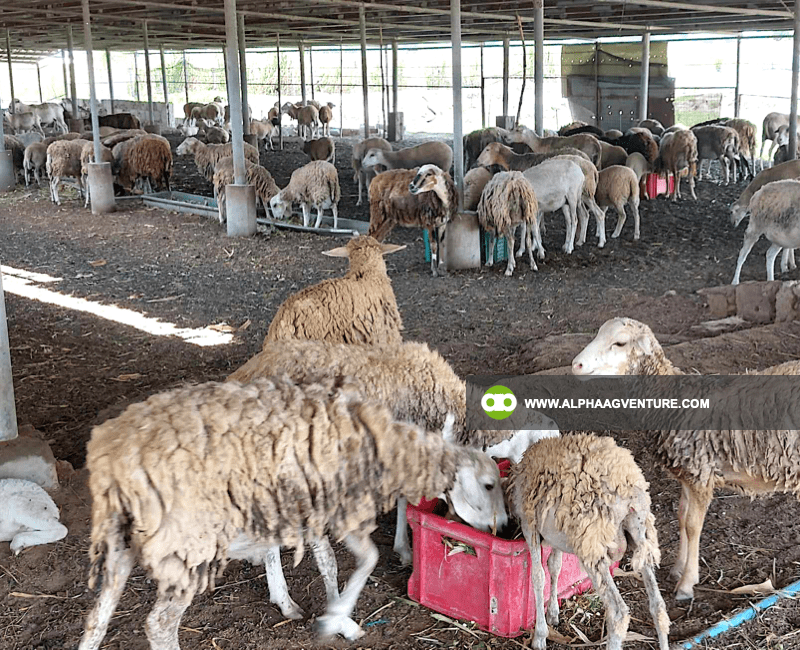
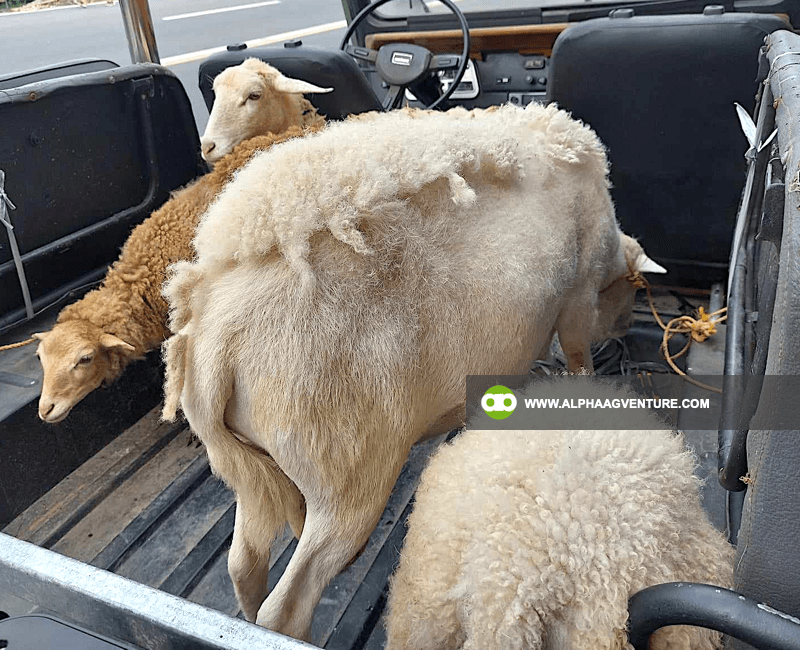
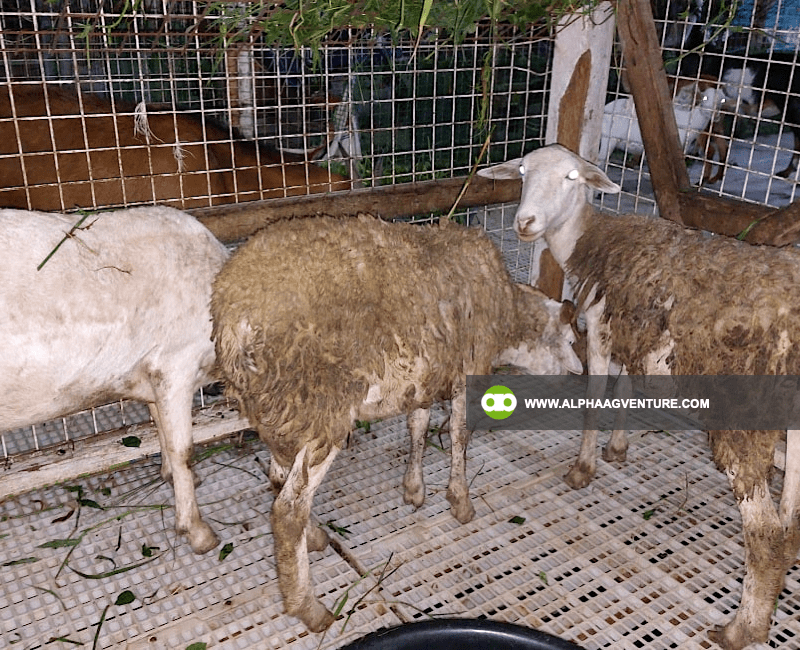
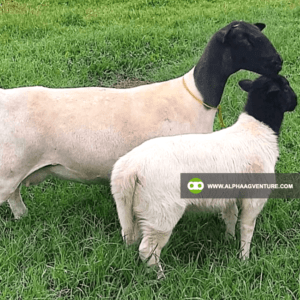
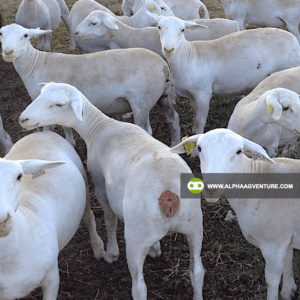
Reviews
There are no reviews yet.